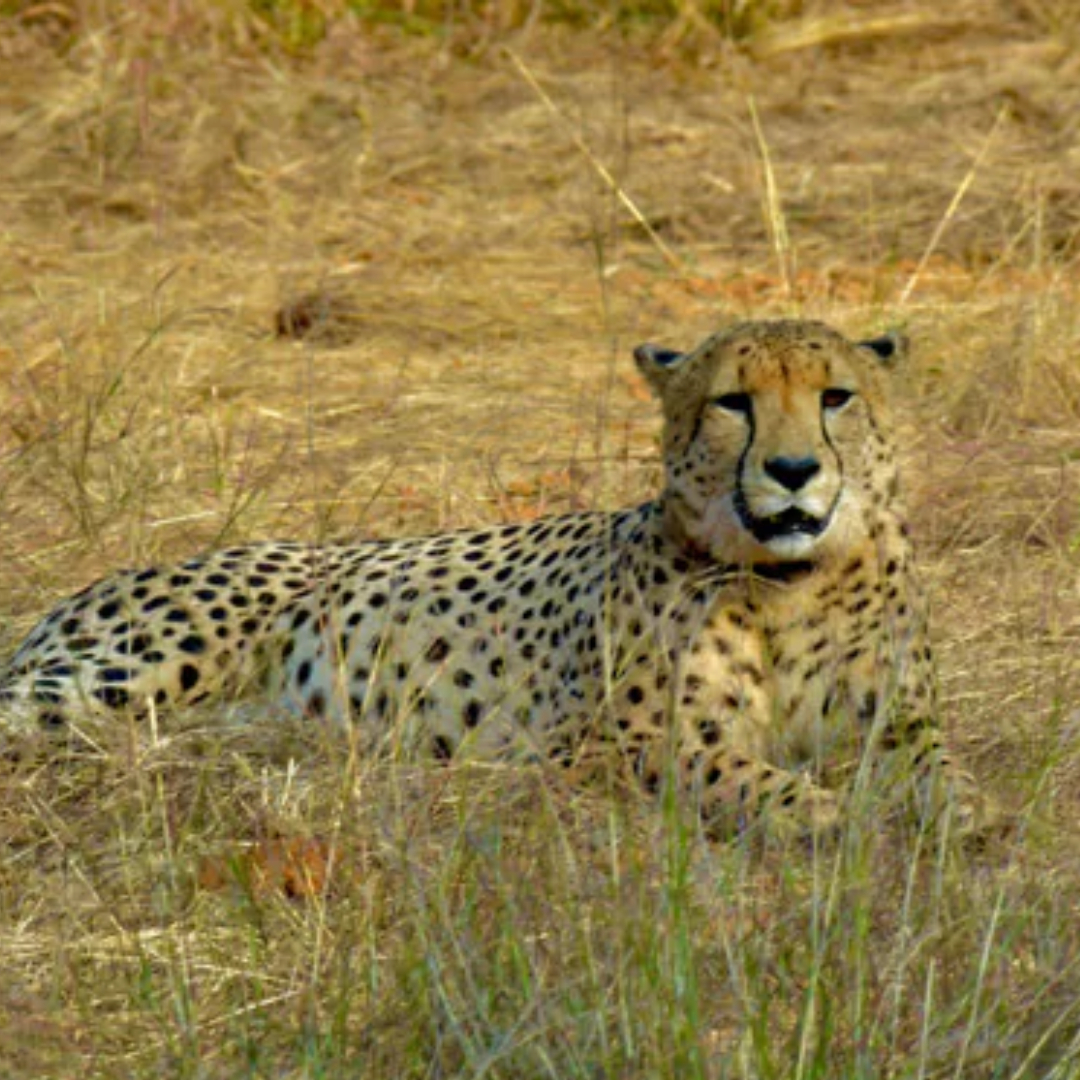The Ministry of Environment, Forest and Climate Change (MoEFCC) has responded to the recent deaths of cheetahs within Madhya Pradesh’s Kuno National Park. In an official statement, the ministry clarified that out of the 20 adult cheetahs that were translocated, five mortalities were due to natural causes, contrary to reports lacking scientific evidence.
Efforts are underway to investigate the cause of the cheetah deaths, with consultations being held with international cheetah experts and veterinary doctors from South Africa and Namibia. National experts are also reviewing existing monitoring protocols, protection measures, managerial inputs, veterinary facilities, and training and capacity-building aspects.
Citing media reports attributing the deaths to several reasons including their radio collars, the statement said,” Such reports are not based on any scientific evidence but are speculation and hearsay.”
‘Fatality Rate Not Uncommon’
The Cheetah Project Steering Committee is actively monitoring the project’s implementation and has expressed satisfaction with the progress made so far. Several steps have been planned to support the cheetah conservation project, including the establishment of a Cheetah Research Center with facilities for rescue, rehabilitation, capacity building, and interpretation. Additional forest areas will be brought under the administrative control of Kuno National Park for landscape-level management. Moreover, more frontline staff will be deployed, a Cheetah Protection Force will be established, and a second home for cheetahs will be created in the Gandhi Sagar Wildlife Sanctuary in Madhya Pradesh.
To ensure effective management, a dedicated team from the National Tiger Conservation Authority (NTCA) has been deployed to work closely with field officials. The team analyzes real-time field data to make informed decisions on various management aspects, including health and interventions required for better conservation efforts.
The ministry emphasized that the success or failure of Project Cheetah, aimed at reintroducing cheetahs to India, cannot be determined prematurely. Valuable insights have been gained in cheetah management, monitoring, and protection over the last 10 months. The ministry remains optimistic about the project’s long-term success and advises against drawing speculative conclusions at this stage.
Project Cheetah is being implemented by the NTCA in collaboration with the Madhya Pradesh Forest Department, the Wildlife Institute of India (WII), and cheetah experts from Namibia and South Africa. The project follows the “Action plan for Introduction in India,” and a Steering Committee has been formed to oversee its implementation. Currently, 11 cheetahs are under free-ranging conditions, while five remain in quarantine enclosures.
The project accounts for the challenges and fluctuations that can occur during the initial phase of reintroducing cheetahs, drawing from global experiences that indicate mortality rates among introduced cheetahs are not uncommon.
Eighth Cheetah Death At Kuno
In a devastating turn of events, another male cheetah has met an untimely demise at the national park in Madhya Pradesh, marking the eighth casualty in a mere four-month period. Suraj, an African cheetah, was discovered lifeless at Kuno National Park during the early hours of this morning. Authorities are currently working diligently to determine the exact cause of Suraj’s unfortunate passing.
This incident follows very closely after the recent loss of another male cheetah, Tejas, whose postmortem examination revealed that the death happened due to a violent altercation with a female cheetah. The series of cheetah fatalities began on March 27 when Sasha, a female cheetah, succumbed to a kidney ailment. On April 23, Uday fell victim to cardio-pulmonary failure, and on May 9, Daksha, another female cheetah, lost her life after a violent encounter with a male during a mating attempt. Tragically, two cheetah cubs also perished on May 25 due to extreme weather conditions and dehydration, as per a report in NDTV.
Previously, government officials had vehemently denied any lapses in handling the cheetahs, asserting that high infant mortality rates among cheetahs are a well-known fact in global wildlife literature. In May, South African wildlife expert Vincent van der Merwe expressed concern and predicted further cheetah fatalities, particularly as the cheetahs attempt to establish territories and inevitably encounter leopards and tigers in the park
As per the action plan for cheetah introduction in India, the central government stated that 8-14 cheetahs per year will be required for the next five years, and agreements have been signed with Namibia and South Africa for cooperation in cheetah conservation. Eight cheetahs were transported from Namibia to India on September 17, 2022, and released into quarantine enclosures in Kuno National Park.
Also Read: SC Refuses To Interfere With Manipur HC Ban On Partially Lifting Internet Ban
https://thelogicalindian.com/h-upload/2023/07/18/500x300_232610-web-2023-07-15t111649639.webp
Trending
2023-07-18 10:40:38.0
Recent Cheetah Deaths Due To Natural Causes, Says Government Agency













